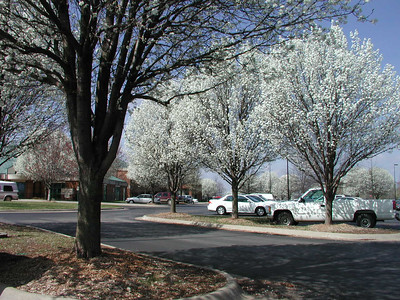Bradford Pear Trees
Nashville, Ark. –
While driving around Howard County one of the first signs spring is near is the blooming Bradford Pear trees. If you are not familiar with this tree and think you might like to plant one or more, I have a few things for you to consider first.
Should I plant a Bradford Pear tree?
No! For starters, these trees are not known for their strength and durability. The life expectancy is about 12-15 years – with perfect weather conditions maybe 20 years. How often do we find ourselves with perfect weather conditions in Southwest Arkansas? It is not often; you would more than likely go outside after a storm and find your tree blown over in your yard. When Bradford Pears first arrived in the U.S. they were believed to be sterile; however, over time we learned this was not true.
Do Bradford Pear trees really threaten our native species?
Yes. While Bradford Pears will not reproduce among themselves, they do cross pollinate with other Callery pear trees resulting in the unwanted thorny thickets of hybrid, invasive pears that threaten our native species today.
Also, while the Bradford might be pretty to look at, it gives off a foul smell that is also known to turn many people’s noses.
Should I remove my Bradford Pear trees?
If you have some of these beautiful but problematic trees and are thinking about removing them, it is not necessary unless the tree is damaged or declining. Removing healthy trees will have no impact on the invasive hybrid pear problem we face today. Once you lose a tree do not replace it with a new one or any type of “improved” ornamental pear tree.
If you are in search for landscape trees there are better options that will live longer and are more suitable for Arkansas and support wildlife, you can contact me for more information by email to shorn@uada.edu. Howard County Extension office is still working and is there for all the residences in Howard County during this time.
If you're thinking of planting a tree, visit our tree care and planting tips page for help.
By Samantha Horn
County Extension Agent - Agriculture
The Cooperative Extension Service
U of A System Division of Agriculture
Howard County Cooperative Extension Service
421 N. Main Nashville AR 71852
(870) 845-7517
shorn@uada.edu
Related Links
